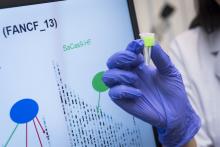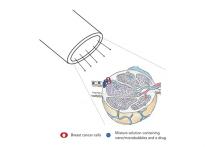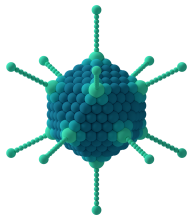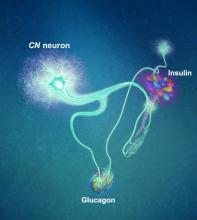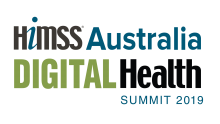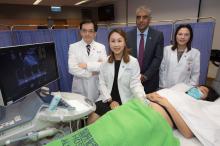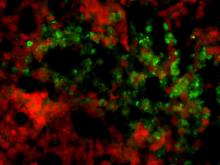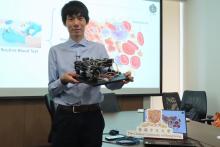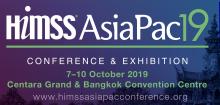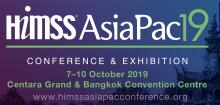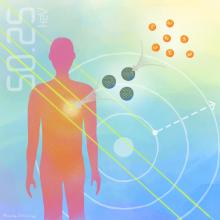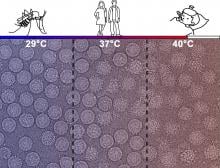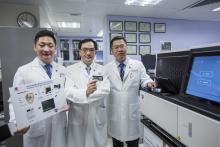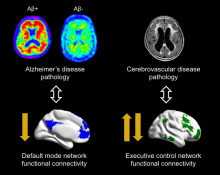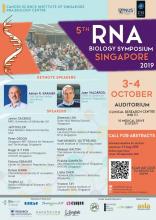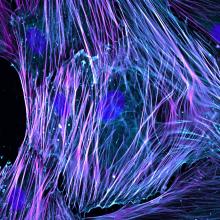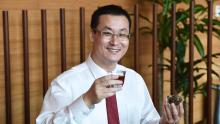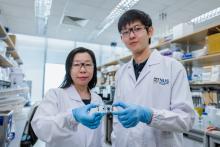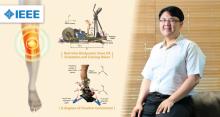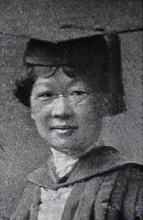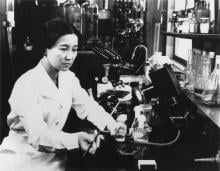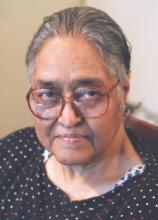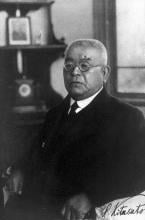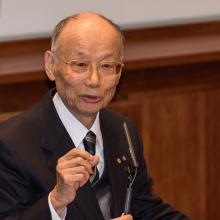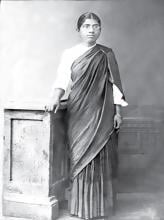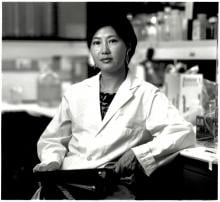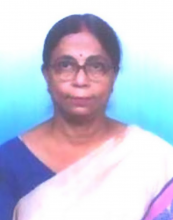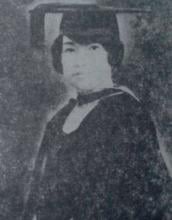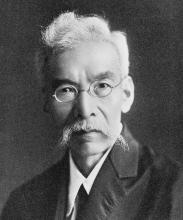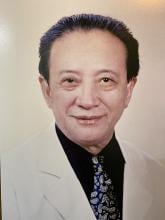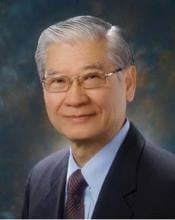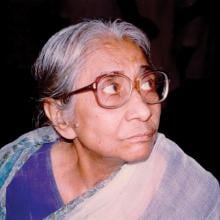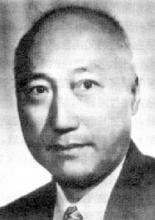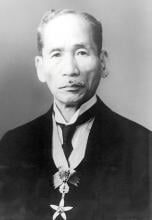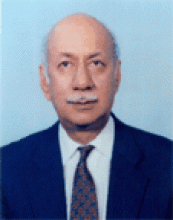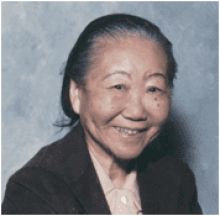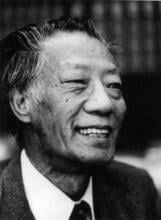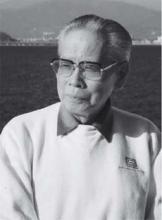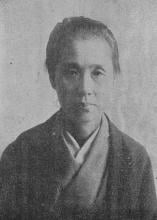Health
News
01 Nov 2019
Four young researchers from The Chinese University of Hong Kong (CUHK) have been awarded China's Excellent Young Scientists Fund 2019. Each of them will receive a funding of RMB1.3 million to directly support their scientific research projects in Hong Kong to a maximum period of three years.
01 Nov 2019
A team of researchers from City University of Hong Kong (CityU) and Karolinska Institutet has recently developed a new protein which can help increase the targeting accuracy in the genome editing process. It is believed that it would be useful for future gene therapies in human which require high precision.
01 Nov 2019
Antibodies against viruses from the same family as Ebola and Marburg have been detected in fruit bats and the human community hunting them, indicating cross-species virus transmission has occurred in the past, warns a global team of infectious disease scientists.
30 Oct 2019
Development of novel agonist antibodies to treat cancer by collaboration between academia and industry
29 Oct 2019
Drugs can be safely delivered to cancerous lymph nodes via the lymphatic system and then released inside the nodes using sound waves. Tohoku University researchers tested the treatment on mice with metastatic breast cancer and published their findings in the journal Scientific Reports.
24 Oct 2019
Large-scale study to identify human adenovirus genotypes in Singapore leads to discovery of four new adenovirus strains and increase in strains linked to severe diseases. Researchers suggest use of antiviral therapies and adenovirus vaccines, and routine monitoring of adenovirus strains.

24 Oct 2019
A recent research led by a scientist at City University of Hong Kong (CityU) has discovered an easily transmitted DNA piece that can make a new type of hyper-resistant and deadly superbug become hyper-virulent quickly, posing an unprecedented threat to human health.
23 Oct 2019
When a fly eats sugar, a single brain cell sends simultaneous messages to stimulate one hormone and inhibit another to control glucose levels in the body. Further research into this control system with remarkable precision could shed light on the neural mechanisms of diabetes and obesity in humans.
23 Oct 2019
There will be three breakout tracks at the summit: Data, Innovation and Empowering Patients.
22 Oct 2019
A recent study conducted by the Department of Obstetrics and Gynaecology of the Faculty of Medicine at The Chinese University of Hong Kong (CUHK) has validated the use of the UK Fetal Medicine Foundation (FMF) triple test for the prediction of preterm preeclampsia at 11-13 weeks’ gestation in a large Asian population. The findings have been published in the international journal American Journal of Obstetrics & Gynecology.
18 Oct 2019
A compound effective in killing chemotherapy-resistant glioblastoma-initiating cells (GICs) has been identified, raising hopes of producing drugs capable of eradicating refractory tumors with low toxicity.
17 Oct 2019
Faulty signalling pathway causes the heart to develop unnaturally while in the embryo stage, according to Duke-NUS Medical School researchers.
11 Oct 2019
The world’s first “AI-enabled Portable Quantitative Phase Microscope for Blood Testing” is one of the five innovative projects to be showcased by The Chinese University of Hong Kong (CUHK) in the coming Hong Kong Electronics Fair (Autumn Edition) 2019 at the Hong Kong Convention and Exhibition Centre from 13 to 16 October. This project is able to provide low-cost, fast and high efficiency blood testing technology in general clinics and underdeveloped areas.
07 Oct 2019
Results from the first long-term cohort study of more than 36,000 Japanese men over decades suggest an association between eating mushrooms and a lower risk of prostate cancer.
04 Oct 2019
A healthcare specialised independent communications and advocacy firm, SPAG revealed its inaugural and ambitious report, ‘Pave the Wave: APAC Healthcare Communications Outlook’.
01 Oct 2019
Healthcare and Information Management Systems Society Asia Pacific (HIMSS APAC) and Elsevier are proud to announce the finalists for the Asia Pacific HIMSS-Elsevier Digital Healthcare Award
01 Oct 2019
Conference & Exhibition is organised by the Healthcare and Information Management Systems Society Asia Pacific (HIMSS APAC), and is supported by the Ministry of Public Health Thailand.
30 Sep 2019
X-rays could be tuned to deliver a more effective punch that destroys cancer cells and not harm the body.
20 Sep 2019
Researchers from Duke-NUS Medical School, in collaboration with the Agency for Science, Technology and Research’s Bioinformatics Institute, and the University of Texas Medical Branch, USA, have discovered that the dengue virus changes its shape through mutations in Envelope protein to evade vaccines and therapeutics. The study also gives insights on the types of treatment strategies to use at different stages of infection. This could give rise to new approaches in vaccine development and treatment for dengue disease.

19 Sep 2019
Find out more at the 9th Vitafoods Asia in Singapore 25-26 September 2019.
18 Sep 2019
The Department of Obstetrics and Gynaecology of the Faculty of Medicine at The Chinese University of Hong Kong (CUHK) has successfully introduced a new genome sequencing technique for prenatal invasive genetic diagnosis. It offers enhanced sensitivity and accuracy of diagnosing lethal and severe congenital disorders through precise detection of pathogenic microdeletion or microduplication in the fetus, compared with the current practice karyotyping analysis and chromosomal microarray analysis (as known as fetal DNA chip testing). The team conducted a study on the innovation and the findings were recently published on the international journal Genetics in Medicine.
17 Sep 2019
Differential changes in brain functional network connectivity in people with mild cognitive impairment may aid early tracking of Alzheimer’s disease and cerebrovascular disease.
17 Sep 2019
Last Call - Online Registration deadline - 20 September 2019
12 Sep 2019
Researchers from China, France and the USA have evaluated China’s success in stemming emissions from its coal-fired power plants (CPPs).
12 Sep 2019
The formation of excess fibrous tissue in the heart, which underlies several heart diseases, could be prevented by inhibiting specific proteins that bind to RNA while its code is being translated.
12 Sep 2019
A recent study led by researchers from the National University of Singapore revealed that regular tea drinkers have better organised brain regions compared to non-tea drinkers.
10 Sep 2019
STAMP technology is a million times more sensitive and comprehensive to accurately detect and classify tumours from a small clinical sample
06 Sep 2019
A recent study, affiliated with South Korea's Ulsan National Institute of Science and Technology (UNIST) has identified the sleep-promoting effects of dietary threonine, as well as its neurobiological principle.
05 Sep 2019
A research team, affiliated with South Korea's Ulsan National Institute of Science and Technology (UNIST) has presented a system that can quantitatively complement the diagnosis of knee arthritis, which was performed only by x-ray and doctor’s judgment.
04 Sep 2019
15% off prevailing conference rates when you register with Asia Research News promo code!
Events
Sorry, no events coming up for this topic.
Researchers
Sorry, no researchers coming up for this topic.
- « first
- ‹ previous
- 1
- 2
- 3
- 4
Giants in history
Chinese biochemist Chi Che Wang (1894 - 1979), one of the first Chinese women to study abroad, advanced to prominent research positions at American institutions including the University of Chicago and the Northwestern University Medical School.
Ruby Sakae Hirose (1904 – 1960) was a Japanese-American scientist whose research contributed significantly to our understanding of blood clotting, allergies and cancer.
Flora Zaibun Majid ( 1939–2018) was an accomplished Bangladeshi researcher in botany and nutrition science and the first female chairperson of the Bangladesh Council of Scientific and Industrial Research.
Iranian physician and bacteriologist Azar Andami (8 December 1926 – 19 August 1984) developed a cholera vaccine to combat an outbreak that swept through the Middle East, India, Southeast Asia, and Africa in 1937.
Irene Ayako Uchida’s (8 April 1917 – 30 July 2013) strides to understand genetic diseases such as Down syndrome paved the way for early screening of chromosomal abnormalities in foetuses.
Baron Kitasato Shibasaburo (29 January 1856 – 13 June 1931) was a Japanese physician and bacteriologist whose work led to a new understanding of preventing and treating tetanus, diphtheria and anthrax.
Maggie Lim (5 January 1913 – November 1995) was a Singaporean physician who promoted family planning and expanded the access to clinics to improve the quality of life for mothers and children in Singapore’s early days.
By isolating soil microorganisms and studying the compounds they produce, Satoshi Omura (born 1935) discovered almost 500 organic compounds with unique properties that were produced by these microorganisms, including many new antibiotics.
The founder of the Adyar Cancer Institute in India, Muthulakshmi Reddy (30 July 1886 – 22 July 1968), fought to uplift women and girls from impoverished situations.
Chinese-American virologist and molecular biologist Flossie Wong-Staal (27 August 1946 – 8 July 2020) was the first scientist to clone HIV and determine the function of its genes.
Maharani Chakravorty (1937 – 2015) was one of India’s earliest molecular biologists whose research paved the way for advances in the treatment of bacterial and viral infections.
Archana Sharma (16 February 1932 - 14 January 2008) conducted research into plant and human genetics that expanded the understanding of both botany and human health. In relation to botany, she uncovered the means by which asexually-reproducing plants evolve into new species.
The first Thai woman to receive a degree in medicine, Margaret Lin Xavier (29 May 1898 – 6 December 1932), is best remembered for her compassion towards her less privileged patients.
In 1915, pathologist Katsusaburo Yamagiwa and his research assistant Koichi Ichikawa became the first to prove that chronic exposure to chemicals can cause cancer.
Filipino chemist and pharmacist Manuel A. Zamora (29 March 1870 – 9 July 1929) is best remembered for his discovery of the tiki-tiki formula to combat beriberi, a disease caused by Vitamin B1 deficiency.
After witnessing death and suffering as a youth in his home village during World War II, Nguyễn Tài Thu (6 April 1931 – 14 February 2021) set his sights on alleviating pain by becoming a doctor. After studying Traditional Chinese Medicine in China in the 1950s, Thu returned to Vietnam to serve in military hospitals. Eventually, he became the country’s foremost practitioner of acupuncture, a technique he first learned by inserting needles into himself.
David T. Wong (born 1936) is a Hong Kong-born American neuroscientist who is best known for discovering the antidepressant drug fluoxetine, better known as Prozac.
Indian organic chemist Asima Chatterjee (1917 to 2006) studied the medicinal properties of plant products, especially compounds known as vinca alkaloids.
Hsien Wu (24 November 1893 – 8 August 1959) is widely regarded as the founder of biochemistry and nutrition science in China. He was the first to propose that protein denaturation was caused by the unfolding of the protein, instead of chemical alteration.
Umetaro Suzuki (7 April 1874 – 20 September 1943) was a Japanese scientist best remembered for his research on beriberi, a disease caused by vitamin B1 deficiency, characterized by limb stiffness, paralysis and pain.
Syed Qasim Mehdi (13 February 1941 – 28 September 2016) was a Pakistani molecular biologist who was a founding member of the Human Genome Diversity Project (HGDP), which assessed human diversity by studying human migration, mutation rates, relationships between different populations, genes involved in height and selective pressure.
Tsai-Fan Yu (1911 – 2 March 2007) was a Chinese-American physician and researcher who was the first female full professor at Mount Sinai School of Medicine. She discovered that gout, a condition characterized by the painful inflammation of joints, was caused by elevated levels of uric acid in the bloodstream.
Min Chueh Chang (10 October 1908 – 5 June 1991) was a Chinese-American biologist who studied fertilization in mammalian reproduction.
A Japanese surgeon, Tetsuzo Akutsu (20 August 1922 – 9 August 2007) built the first artificial heart capable of keeping an animal alive.
Ogino Ginko (3 March 1851 – 23 June 1913) was the first registered female doctor to practise modern medicine in Japan.



